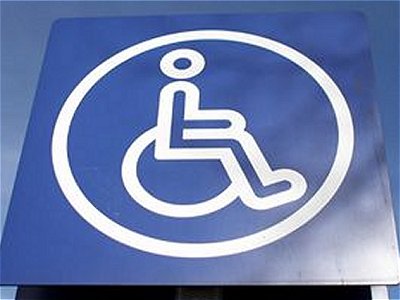
AWKWARD
Jesus empowered people who were disabled, giving them choices over their future. Is the modern Church as welcoming, especially towards those who have been disabled from birth?
Scope, the charity for people with cerebral palsy, has launched what it has termed an ‘End the Awkward’ campaign, designed to help people relate more naturally to disabled people. The use of that fashionable word ‘awkward’, beloved of the millennial generation, is well chosen. The national survey to launch the campaign found that younger people were more likely to have negative attitudes to disabled people than older people. Two thirds of all people surveyed felt awkward around disabled people, mainly out of anxiety for doing or saying the wrong thing. Most surprising of all, perhaps, nearly half did not personally know someone who was disabled. This suggests we are much less integrated as a nation than we would like to think.
The attitude of the different religions to disability sometimes leaves a lot to be desired, and the Church is no exception. While legislative changes to make places of worship more accessible have also effected cultural change, making people more aware of the needs of others, there are still disquieting pockets of opinion which see the disability of another person as a challenge which must be overcome, without any empathy for the object of their pity or any sense of how God may be at work in them.
The account of the healing of Bartimaeus informs us in subtle, easily missed ways of the bespoke love God has for every person and how he empowers them.
In Mark 10:46, Jesus was leaving Jericho, his business done. He was constantly surrounded by swarms of people who wanted to live in his reflected glow, eager for something spectacular to happen. Crowds like this tend to be unsympathetic to those who get in their way – and so it proved. Bartimaeus was poor and blind. As so often happens, the disability made it impossible for him to make a living and so became aggravated by poverty. He was also reliant on others to interpret the world around him, which was how he discovered Jesus of Nazareth was passing. He began to cry out: ‘Son of David, have mercy on me!’ The crowd did not want a demented man on the fringes ruining the momentum of Jesus’ entourage but Bartimaeus was not to be deterred. His embarrassing persistence paid off when Jesus stopped in his tracks and called him.
What happens next is easily overlooked, but possibly more important than the healing itself. Jesus does not presume to cure him of his blindness; instead he asks Bartimaeus: ‘what do you want me to do for you?’ From a lifetime of being told what to do and where to sit, Bartimaeus is suddenly propelled into the white spotlight of the attention of the Son of God, who promptly hands him the script: ‘What do you want, Bartimaeus?’ It was a subtle and moving act of empowerment. Bartimaeus was at last in control. He knew what he wanted. Jesus knew what he wanted – everyone guessed he wanted his sight back – but the choice was his alone.
Jesus here showed a deep sensitivity to this blind man’s corroded personal dignity and began his restoration as a human being. On being cured, Mark says that Bartimaeus followed Jesus on the way. No-one had to help him; Bartimaeus could see where he was going. We often speak of healing as it is just something that happens to the body. The truth is deeper. Wholeness comes when people take their rightful place in the community, using the gifts God has given them and fulfilling their purpose in life for him.
The story may be placed where it is in Mark’s Gospel for a reason. According to Mark, just prior to leaving Jericho, James and John had been arguing about who was the greatest in the kingdom of God. When the other disciples overheard them, it led to an unseemly jostling of egos which Jesus had to sort out. It is as if Mark is saying to his readers: the disciples of Jesus could see with their eyes but were blind in their hearts, while Bartimaeus was blind in his eyes but could see in his heart that Jesus was the Messiah who said that the meek would inherit the earth.
Sometimes in politically correct circles, disabled people are described as ‘differently abled’. This is not as daft as those who scoff would like to believe, for blind people learn to see with their ears and hands while deaf people learn to hear with their eyes. Bartimaeus saw the truth before many of those around him who had perfect vision.
The culture of the modern Church should be open to disabled people, which means listening to their stories and taking their contribution seriously. Many church members who are disabled have become so through advancing age, which places emotional, physical and spiritual strains on both them and their carers. But what of those who are disabled from birth, like Bartimaeus? It is unsettling, and perhaps telling, that there are proportionately far fewer of them in our congregations.
Awkward.
POPULAR ARTICLES

Obama's Covert Wars
The use of drones is going to change warfare out of all recognition in the next decades.

Through A Glass Starkly
Images of traumatic incidents caught on mobile phone can be put to remarkable effect.

What Are British Values?
Is there a British identity and if so, what has shaped the values and institutions that form it?


